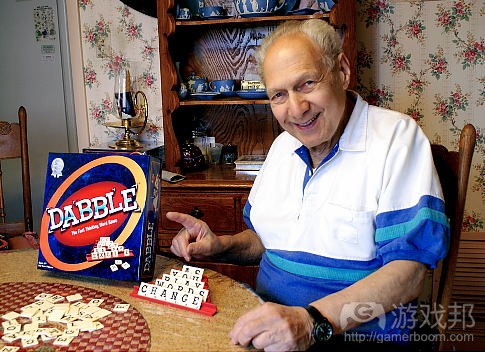每日观察:关注《Hungry Shark Part 3》的IAP交易(8.18)
1)美国高龄应用发明者George Weiss今年已经84岁,他推出的0.99美元游戏《Dabble – The Fast Thinking Word Game》已在日前登陆苹果App Store。
这款怀旧风格的游戏目标是通过20个堆叠成金字塔状的字母,快速拼出5个单词,而这些单词可能包括2、3、4、5甚至6个字母。George Weiss称尽管1958年以来,世界变化非常之快,但好游戏仍然很有群众基础。
据venturebeat报道,该游戏由Weiss与一个大型团队共同完成,其实体版本最初由Ideas Never Implemented(简称INI)在今年首先制作出炉,并通过Barnes & Noble渠道发售;数月之后则由Flashy Substance和Itch使用Corona SDK开发成手机应用,但所有开发者都称该游戏荣誉应属于Weiss。
INI总裁及创始人Jay Vohra表示,George Weiss首先找到他,提出该游戏想法并称希望能够在有生之年见到游戏成型。于是INI就协助他制作出了其桌面游戏的实体版本,而Flashy Substance开发者Joesph Flowers见到这款简单易上手的游戏时,便将其打造成了一款手机应用。
2)Ovum最新报告表明,2010年全球手机出货量为14.9亿部,预测2016年手机出货量总数或达17.7亿部,年均增长率为2.5%。
该公司指出,新兴市场国家的智能手机出货量将成为主要发展动力,3G移动网络向4G的转变也发挥了重要作用,并称2010年9月,全球移动用户已经超过50亿。
3)据pocketgamer报道,英国开发商Future Games of London(简称FGOL)近日将99美分iOS游戏《Hungry Shark Part 3》调整为免费游戏,其日下载量立即上升至25万次,至今累计下载量已超过1850万次,MAU总数也达到了550万。
值得注意的是游戏中的IAP(应用内置付费功能)交易情况,用户在每笔IAP交易中平均消费3.26美元,使游戏总收益增长5倍(游戏邦注:该游戏的虚拟商品价格区间是1.99美元至4.99美元)。
4)BBC Worldwide日前向Android平台推出iOS移植游戏《Doctor Who:The Mazes of Time》,该游戏原版本由芬格兰Tag Games公司开发,并于2010年11月登陆iPhone和iPad平台。
该游戏的Android版本采用了IAP盈利模式,含有一系列免费关卡,以及可在游戏中购买的额外内容。
5)美国公司W3 Unnovations日前因旗下iOS应用搜集儿童用户数据而被联邦贸易委员会(FTC)起诉,并被责令罚款5万美元。
FTC称W3公司旗下子公司Broken Thumbs Apps非法搜集了3万多个电子邮箱地址以及用户姓名等其他个人信息,这种行为违反了美国儿童在线隐私权保护法案(COPPA)。除了落实罚款之外,该公司还承诺将删除所有搜集到的儿童用户个人信息。(本文为游戏邦/gamerboom.com编译,如需转载请联系:游戏邦)
1)84-year-old becomes oldest app inventor with the word game Dabble
Regina Sinsky
George Weiss is 84, and he just may be the eldest mobile application inventor in America. His app is called Dabble – The Fast Thinking Word Game, and it is now available for iPhone, iPod touch and iPad.
The object of the $0.99 game is to spell five words as quickly as possible suing the 20 letters stacked in a pyramid shape. The five words must include a two, three, four, five and six letter word. The premise is simple and addictive. Dabble feels like the kind of old fashioned game you play with your grandparents — even grandparents reluctant to pickup an iPad.
“A lot has changed since 1958, but people still love a good game,” says Weiss in a press release today, reflecting on the year he first came up with the game. Weiss is hard to get a hold of in person because he cares for his wife who has Alzheimer’s. We will add more from Weiss when he gets a chance to give us a call.
After half a century of tinkering in his Brooklyn basement workshop, Dabble is Weiss’s first invention that has been brought to market. Weiss worked with a large team to make the Dabble app a reality. The physical version of the game was first picked up and produced by Ideas Never Implemented (INI) in 2011 and distributed by Barnes & Noble. After a few months developers at Flashy Substance and Itch used Corona SDK* from Ansca Mobile to create the Dabble app.
Corona lets users create graphically rich applications and games for the iOS and Android operating systems. It uses the Lua language, which is easier than Objective-C, the programming language used for most iPhone games. There’s a free version of Corona and a $349 version that lets you publish to the App Store.
Even though he didn’t code the app himself, everyone who has been a part of the game’s success points back to Weiss, from the developers at Flashy Substance to the founder of INI. Weiss gets full credit for the game.(source:venturebeat)
2)Global mobile shipments to hit 1.77 billion by 2016
by Tim Green
That 230m more than this year.
Ovum is predicting annual growth of 2.5 per cent over the next five years, continuing the bounce back from recession-hit 2009, and up from the 1.49 billion units shipped last year.
Unsurprisingly, it will all be fuelled by movement in emerging markets, and the switch to smartphones.
The evolution from to 3G and 4G mobile broadband networks will also play a key role, with Ovum predicting a growth in shipments of 15.1 per cent from 2010 to 2016, to reach 962 million units.
The world’s mobile population was believed to have passed 5bn in September 2010.(source:mobile-ent)
3)FGOL sees 250,000 daily downloads and average IAP of $3.26 as it sets Hungry Shark Pt 3 free
by Jon Jordan
A freemium success story on the App Store is just another occurrence these days, but the numbers from Future Games of London’s latest push for its Hungry Shark franchise are backed with hard numbers about cash.
On the back of Discovery Channel’s Shark Week, the 99c Hungry Shark Part 3 game went free, generating daily downloads of up to 250,000 and boosting the series total to over 18.5 million, and the monthly active users total to 5.5 million
Big bites
More interesting however was consumption of the in-app purchases such as Mega Shark, Blood Bath and Treasure Map, which cost from $1.99 to $4.99.
Average value of an in-app purchase transaction was $3.26, resulting in a five-fold increase in revenues.
Jumping the shark
“The success of the freemium model leads us to believe we will be moving away from paid apps completely,” said Ian Harper, FGOL’s MD.
“By switching business model on Part 3 during Shark Week, we’ve traded 1,000 downloads a day at $1 for 250,000 daily active users (DAUs) we can monetise through in-app purchases.”
He continued, “Our revenue is also now correlated with daily users not daily downloads, which is great as DAU falls off much slower after a sales spike. We’ve also been able to give the whole game away for free and reach an audience a hundred times larger, who we can also promote other products to.” (source:pocketgamer)
4)Doctor Who materialises on Android for the first time
by Stuart Dredge
BBC Worldwide dips its toes in the Google-powered waters with port of iOS game.
BBC Worldwide has released its first Android app: a port of iOS game Doctor Who: The Mazes of Time.
Originally developed by Scottish firm Tag Games, the game sees the Doctor and companion Amy Pond battling Cybermen, Daleks and Silurians. It came out on iPhone and iPad in December 2010.
On Android, the game is using in-app purchases as its business model. It comes with a set of free levels, with other packs available to buy within the game.
“Android users make up an increasing percentage of the mobile market and we’re thrilled that they’ll now be able to find their way out of our mazes,” says BBC Worldwide EVP of digital entertainment Robert Nashak.
Games publishers in particular regularly complain that Android continue to underperform when it comes to sales of paid apps. However, the growing size of the platform, and Google’s launch of in-app purchases, is convincing more companies to port their iOS hits across.(source:mobile-ent)
5)iOS app developer fined for collecting children’s personal data
by Stuart Dredge
W3 Innovations to pay $50k following ruling on its Broken Thumbs Apps subsidiary’s activities.
US company W3 Innovations has been fined $50,000 by the Federal Trade Commission, after its Broken Thumbs Apps subsidiary was accused of collecting the personal data of children within its iOS apps.
The fine is part of a settlement reached between W3 Innovations and the FTC, after the latter filed a lawsuit against the company. That complaint claimed that Broken Thumbs had collected more than 30,000 email addresses and other personal details like names from users of its Emily’s Girl World App and Emily’s Dress Up apps.
The data collection fell foul of the US Children’s Online Privacy Protection Act (COPPA), since the apps were clearly being marketed towards children. Besides paying the fine, Broken Thumbs has agreed to delete all the information.
“This settlement is an important victory for online and mobile privacy,” senator Amy Klobuchar tells Ars Technica. “Mobile apps can be great tools for kids to learn and have fun, but parents should never have to worry that their child’s personal information is being collected or violated.”
Apps for kids are popular, but the case may provide a new headache for parents who have been handing over their iPhones and iPads to their children. Last year, mobile social games like Smurfs’ Village were at the centre of controversy as it emerged that some children had spent large sums on in-app purchases without their parents’ knowledge.(source:mobile-ent)















































